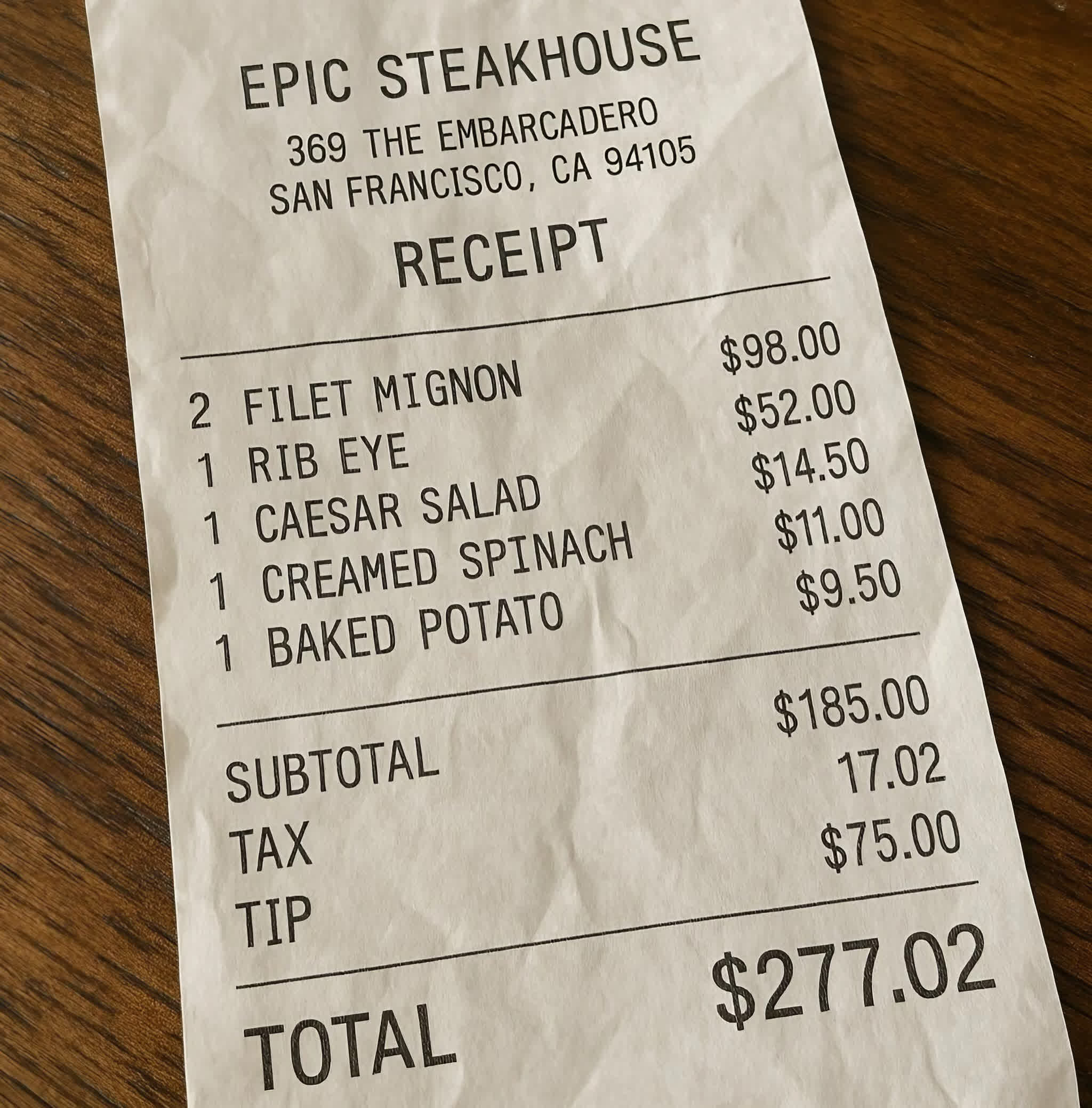Facepalm: When ChatGPT isn't being used to generate those viral Studio Ghibli-inspired images flooding your feeds, it can be tapped to fake receipts instead. The AI chatbot is finally decent enough at comprehending and generating text within images that crafty users realized it could produce fake receipts. These could then easily pass as legit proof of purchase to an unsuspecting set of eyes.

Until recently, AI-generated images had one glaring weakness – garbled or nonsensical text. Many models have managed to fix problems like messed-up hands to the point where they're not even an issue anymore. But text has remained a bit of an Achilles' heel. That's changing fast, though.
For instance, following the latest update to ChatGPT's image generation on its 4o model, users can spit out receipts with near-perfect formatting, itemized lists, and even realistic-looking logos. Of course, they're still not completely flawless and can look overly crisp, have text with odd spacing, and even have math errors.
I think in the original image the letters are too perfect and they don't bend with the paper. They look like hovering above the paper. Here is my attempt to make it more realistic. Let me know what you think. pic.twitter.com/EixRSHubeY
– Michael Gofman (@michaelgofman) March 29, 2025
However, receipts – especially for smaller amounts – aren't often scrutinized too heavily. A few extra tweaks in Photoshop, like adding stains, could easily fool an employer. The payoff is obvious to scammers. All they'd need to do is spend just a few minutes using ChatGPT and Photoshop, and even if the trick only works occasionally, it's still a low-effort, high-reward scheme.
Right now, the most effective method might be to feed an existing receipt to ChatGPT and modify details like prices or dates. But as the tech improves, entirely fabricated receipts could become indistinguishable from real ones.
You'd think that all this would ring alarm bells at OpenAI HQ, but while the company has acknowledged the risk, it isn't hitting the panic button just yet. A company spokesperson explained to TechRadar that it tracks image generation both on and off its platform, uses internal tools to verify AI-created content, and takes action when usage policy violations occur.
Interestingly, OpenAI also sees an upside to this capability. Spokesperson Taya Christianson suggested to TechCrunch that fake receipts could be used for financial literacy education by teaching people how to track expenses or spot fraud in a controlled setting.
Still, one has to wonder if this capability results in a net positive for society.
ChatGPT can now generate fake receipts realistic enough to scam businesses